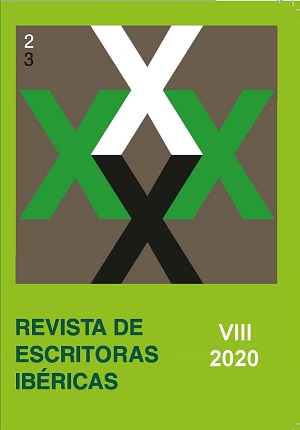La importancia del testamento en la (auto)representación de la mujer noble de la Edad Moderna. María de Guevara, Condesa de Escalante y su proyección histórica
DOI:
https://doi.org/10.5944/rei.vol.8.2020.26675Palabras clave:
Testamentos, Siglo XVII, María de Guevara, Condesa de Escalante, agencia, (auto)representación, memoriaResumen
RESUMEN: Este artículo analiza las últimas voluntades de María de Guevara, Condesa de Escalante, en el contexto del género testamentario de la edad moderna española. En el testamento de 1678, junto con su codicilo de 1681y la memoria pre-mortem de 1683, Guevara se posiciona políticamente desde una sólida consciencia social y de género sexual y consigue dejar una impronta personal e histórica para el futuro. Por su papel custodio, esta documentación se convierte así en una memoria de su vida en la que se distingue claramente entre el yo que se (auto)representa y aquellos que, siguiendo sus mandas y disposiciones, la recordarán después de su muerte.
ABSTRACT: This essay analyzes the last will and testament of María de Guevara, Countess of Escalante, in the context of the testamentary genre of early modern Spain. In the will of 1678, along with the 1681 codicil and the 1683 pre mortem [last disposition] document, Guevara politically positions herself from a solid social and gender consciousness and is able to leave a personal and historical mark for the future. For its custodial role, her last will becomes then a memory of her life in which a clear distinction is made between the ‘I’ that (self)represents and those who, following her dispositions and requests, will remember her after her death.
Descargas
Descargas
Publicado
Cómo citar
Número
Sección
Licencia
Los autores que publican en esta revista están de acuerdo con los siguientes términos:
Los autores conservan los derechos de autor y garantizan a la revista el derecho de ser la primera publicación del trabajo.
La revista Revista de Escritoras Ibéricas se publica bajo licencia Creative Commons Reconocimiento – NoComercial (CC BY-NC). Las opiniones y contenidos de los artículos publicados la Revista de Escritoras Ibéricas son de responsabilidad exclusiva de los autores y no comprometen la opinión y política científica de la revista. También serán responsables de proporcionar copias de los datos en bruto, puntuaciones, y, en general, material experimental relevante a los lectores interesados.
Los autores pueden establecer por separado acuerdos adicionales para la distribución no exclusiva de la versión de la obra publicada en la revista (por ejemplo, situarlo en un repositorio institucional o publicarlo en un libro), con un reconocimiento de su publicación inicial en esta revista.Se permite y se anima a los autores a difundir sus trabajos electrónicamente (por ejemplo, en repositorios institucionales o en su propio sitio web) antes y durante el proceso de envío, ya que puede dar lugar a intercambios productivos, así como a una citación más temprana y mayor de los trabajos publicados (Véase The Effect of Open Access) (en inglés).








